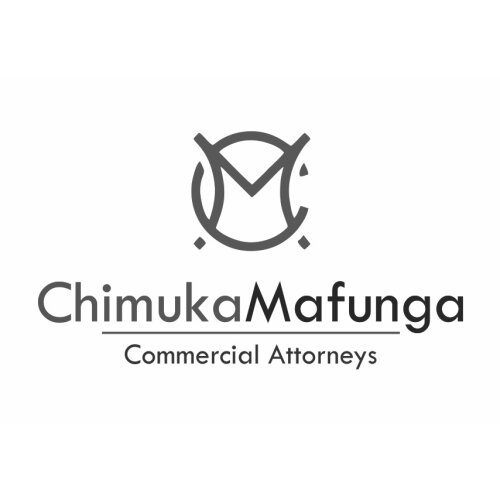Best Sanctions & Export Controls Lawyers in Zimbabwe
Share your needs with us, get contacted by law firms.
Free. Takes 2 min.
Or refine your search by selecting a city:
List of the best lawyers in Zimbabwe
About Sanctions & Export Controls Law in Zimbabwe
Sanctions and export controls in Zimbabwe refer to laws and regulations that govern the movement of goods, services, and technology in and out of the country, as well as domestic and international restrictions on trade and financial dealings. Zimbabwe has faced various internationally-imposed sanctions, mainly from Western countries and organizations, in response to political and governance issues. As a result, dealing with export controls and sanctions compliance is crucial for businesses, financial institutions, and individuals who engage in cross-border transactions. These laws are designed to achieve objectives such as protecting national security, supporting foreign policy, and preventing illegal trade.
Why You May Need a Lawyer
Navigating sanctions and export controls can be complex due to overlapping local laws, international restrictions, and compliance requirements. Common situations where legal advice may be necessary include:
- Operating a business involved in exports or imports, especially of sensitive goods or technology.
- Dealing with blocked bank accounts or assets due to sanctions.
- Receiving requests for information or warnings from government agencies about potential export violations.
- Being accused of doing business with sanctioned individuals or organizations.
- Needing to understand the legal risks involved in cross-border investments.
- Seeking clarification on how foreign banks, financial institutions, or partners may be affected by sanctions targeting Zimbabwe.
- Responding to investigations or enforcement actions related to export controls or sanctions violations.
A lawyer can provide tailored advice, help mitigate risks, and represent you in dealings with authorities or dispute resolution processes.
Local Laws Overview
Zimbabwe’s sanctions and export controls landscape is formed by both domestic laws and the effects of international policies. Key points include:
- The Exchange Control Act and associated regulations govern foreign exchange and the movement of capital, imposing oversight by the Reserve Bank of Zimbabwe on most international transactions.
- Sanctions imposed by entities such as the European Union, United States, and United Kingdom primarily target specific individuals, companies, and sectors. Local compliance may require adapting business dealings accordingly.
- The Customs and Excise Act controls the import and export of goods, requiring appropriate permits and compliance with restricted goods lists.
- Enforcement of export controls is typically managed by agencies such as the Zimbabwe Revenue Authority (ZIMRA) and the Financial Intelligence Unit.
- Zimbabwean law mandates reporting of suspicious transactions, and prohibits dealings with sanctioned entities, aligning with some international anti-money laundering and counter-terrorism financing standards.
- The government occasionally updates rules and guidelines, so staying informed is necessary to avoid inadvertent breaches.
Frequently Asked Questions
What are sanctions and who imposes them on Zimbabwe?
Sanctions are restrictions imposed by countries or international organizations to influence the policies or behaviors of the target country or entities. Zimbabwe is subject to various sanctions by the United States, European Union, United Kingdom, and others, generally targeting individuals, companies, and sometimes sectors related to governance or rights issues.
How do sanctions affect ordinary businesses in Zimbabwe?
Sanctions can cause banks to block financial transactions, make it harder to import certain goods, and limit access to international financing. Even businesses not directly targeted may be affected if they work with sanctioned entities or their service providers are foreign.
What is export controls law, and why does it matter in Zimbabwe?
Export controls are rules that restrict or regulate the export of particular goods, technology, and services. Zimbabwe enforces such controls to maintain security, comply with international obligations, and manage foreign exchange and customs requirements.
What is a restricted goods list in Zimbabwe?
Restricted goods lists specify products that cannot be exported or imported without a license, such as weapons, certain chemicals, or high-value minerals. These are set out in the Customs and Excise Act and other specific regulations.
Can Zimbabwean companies do business with entities in sanctioned countries?
Zimbabwean law generally allows business with most international partners, unless otherwise restricted by international or local sanctions. However, Zimbabwe-based entities must check if their partners are listed or if overseas banks will process payments.
What role does the Reserve Bank of Zimbabwe play in export controls?
The Reserve Bank administrates exchange control rules, grants approvals for certain international payments, and ensures compliance with anti-money laundering legislation and financial sanctions.
What happens if someone violates sanctions or export controls in Zimbabwe?
Violations can result in fines, seizure of goods, loss of licenses, and even criminal prosecution. International violations can also lead to being blacklisted by foreign partners or global banks.
How do I know if I am dealing with a sanctioned person or entity?
You should conduct due diligence checks using the lists published by foreign governments and international bodies. Lawyers and compliance professionals can assist with these checks and interpreting listings.
Are there exceptions to sanctions or ways to obtain licenses?
Certain sanctions have exemptions for humanitarian activity or may allow for trade under specific government-issued licenses. Local and international authorities must be consulted for such permissions.
Where do I report suspected violations or get clarification?
Reports can be made to the Zimbabwe Revenue Authority, the Financial Intelligence Unit, or the relevant ministry depending on the nature of the transaction. Legal professionals can help with making reports or inquiries.
Additional Resources
For further information, the following governmental bodies and organizations can provide guidance and resources regarding sanctions and export controls in Zimbabwe:
- Zimbabwe Revenue Authority (ZIMRA) - Key agency overseeing customs, import, and export regulations.
- Reserve Bank of Zimbabwe (RBZ) - Responsible for exchange controls, foreign currency approvals, and financial sanctions compliance.
- Ministry of Foreign Affairs and International Trade - Provides foreign policy guidance, including about international sanctions.
- Financial Intelligence Unit - Monitors compliance with anti-money laundering and terrorist financing laws.
- Zimbabwe Investment and Development Agency (ZIDA) - Offers business support and advice on legal compliance for investors.
- Chambers of Commerce and Legal Associations - May provide referrals to legal experts familiar with sanctions and export controls law.
Next Steps
If you need legal assistance related to sanctions and export controls in Zimbabwe, consider the following actions:
- Collect all relevant information about your planned or ongoing business activities, transactions, or concerns.
- Identify whether your activities may be impacted by sanctions or export controls, or if you have received any official notice or inquiry.
- Consult a lawyer or compliance expert who specializes in sanctions, export controls, and international trade law in Zimbabwe.
- Ask your lawyer to conduct thorough due diligence checks on the entities you want to do business with and review all key agreements.
- Ensure your company or personal processes comply with all reporting and documentation requirements set by regulators.
- If you face an investigation or enforcement action, engage legal counsel immediately to guide you on the proper procedures and protect your interests.
- Continue monitoring for updates to local laws and international sanctions lists to maintain ongoing compliance.
Proper knowledge and legal guidance can help you avoid costly mistakes, penalties, and disruptions to your business in a fast-changing legal environment.
Lawzana helps you find the best lawyers and law firms in Zimbabwe through a curated and pre-screened list of qualified legal professionals. Our platform offers rankings and detailed profiles of attorneys and law firms, allowing you to compare based on practice areas, including Sanctions & Export Controls, experience, and client feedback.
Each profile includes a description of the firm's areas of practice, client reviews, team members and partners, year of establishment, spoken languages, office locations, contact information, social media presence, and any published articles or resources. Most firms on our platform speak English and are experienced in both local and international legal matters.
Get a quote from top-rated law firms in Zimbabwe — quickly, securely, and without unnecessary hassle.
Disclaimer:
The information provided on this page is for general informational purposes only and does not constitute legal advice. While we strive to ensure the accuracy and relevance of the content, legal information may change over time, and interpretations of the law can vary. You should always consult with a qualified legal professional for advice specific to your situation.
We disclaim all liability for actions taken or not taken based on the content of this page. If you believe any information is incorrect or outdated, please contact us, and we will review and update it where appropriate.
Browse sanctions & export controls law firms by city in Zimbabwe
Refine your search by selecting a city.
















